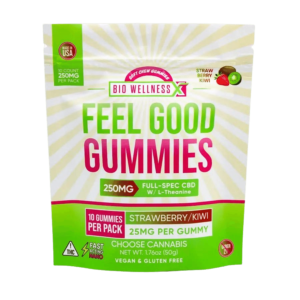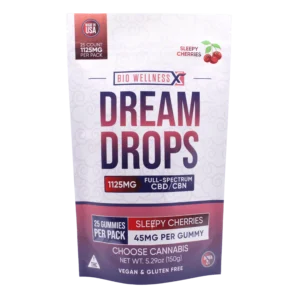In our quest akin to finding a needle in a haystack, we’re turning our attention to CBD and its potential role in combating nausea. Having been on the receiving end of rave reviews for various health benefits, it’s only natural that we scrutinize its effectiveness in curbing this all-too-common ailment.
Is CBD the elusive elixir we’ve been searching for, or is it just another flash in the pan? Join us as we sift through the evidence, leaving no stone unturned.
Key Takeaways
- CBD may interact with serotonin receptors to help manage nausea, although more research is needed.
- Sativex, a combination of CBD and THC, has been effective in relieving chemotherapy-induced nausea.
- Full-spectrum CBD products, which have undergone rigorous vetting for quality, may aid in nausea relief.
- While THC might be more effective in reducing nausea, CBD provides benefits without causing psychoactive effects.
What is CBD and Where Does it Come From?
CBD is like the cool, calm cousin of THC, the stuff that doesn’t send you on a wild trip. CBD, short for cannabidiol, is a natural gem of health benefits, nestled in cannabis plants, but it won’t leave you feeling spaced out like its psychoactive sibling.
Now, you might wonder, ‘How do we get CBD?’ Great question! When it comes to getting CBD out of those green plants, there are a few tricks up the sleeve. Let’s talk extraction methods.
Firstly, we’ve got the supercritical CO2 extraction. Where pressurized carbon dioxide swoops in, snatching CBD and pals from the hemp plant. It’s neat, tidy, and churns out top-notch CBD goodies.
Next on the extraction menu is solvent extraction. Here, we’re talking about using solvents like ethanol or butane to coax CBD out of the hemp. It’s budget-friendly but can leave a hint of solvent behind, so it’s not everyone’s cup of tea.
Then, there’s hydrocarbon extraction, a bit like solvent extraction’s edgy cousin. This time, hydrocarbon solvents like propane or butane do the heavy lifting. It’s a similar dance but with more risk and specialized gear involved.
Now, why does this extraction business matter? Well, it shapes the CBD products we end up with. Some are full-spectrum, meaning they keep all the plant’s cannabinoid and their benefits, including a whisper of THC. Others go broad-spectrum, keeping the gang together but giving THC the boot. And then there are CBD isolates, the purest of the pure, containing nothing but CBD.
But hey, before you dive headfirst into the CBD wonderland, here’s a heads-up: not all CBD products are created equal. Poor manufacturing can leave nasty chemicals and heavy metals lurking in your CBD goodies. That’s why it’s crucial to buy from reputable brands that have third-party lab testing. You want your CBD experience to be all about relaxation, not dodging harmful substances!
And finally, if you’re wondering about the legal aspects, CBD is considered federally legal as long as it’s derived from organically grown hemp plants and contains only trace amounts of Delta-9 THC, less than 0.3% of total dry weight to be exact. But then again each state makes up its own rules, so always check your legal backyard.
How Does CBD Interact with the Body
When CBD enters the body, it pays a visit to the body’s endocannabinoid system (ECS), a sprawling network of receptors scattered throughout our bodies. Now, two receptors, CB1 and CB2, they’re pretty important when it comes to controlling nausea and vomiting. This ECS isn’t just any system; it’s the maestro behind maintaining balance, or as we like to call it, homeostasis, in crucial functions like pain, mood, sleep, appetite, and immune response to name a few.
So, how does CBD shimmy its way into this intricate system? Here’s the lowdown:
Indirect Receptor Play: Unlike its buzzy cousin THC, CBD doesn’t stroll up to the main cannabinoid receptors (CB1 and CB2) in the ECS and shakes hands. Instead, it’s more of a backstage manager, orchestrating how these receptors react to the body’s natural endocannabinoids or those produced by external cannabinoids. CBD might even throw a spanner in the works of endocannabinoid breakdown, letting them linger longer and work their magic.
Mixing and Mingling with Other Receptors: CBD isn’t one to stick to the usual crowd; it likes to mingle beyond the CB1 and CB2 receptors. Picture it cozying up to receptors for serotonin, the mood-regulating neurotransmitter, or kicking back with opioid receptors that play a role in how we perceive pain.
By pulling the strings in these diverse systems, CBD is believed to offer a whole host of potential benefits for various conditions, from calming the nerves and easing nausea to soothing aches and pains. It’s like CBD’s got a backstage pass to the body’s most happening functions, and it’s not afraid to use it!
Does CBD Help with Nausea and Nausea Symptoms
One day, everything is going fine, and then, here it comes, the pesky sensation we all know too well: nausea. Whether it’s a result of motion sickness, a stomach bug, a hangover, or the side effects of some treatments, nausea can throw a wrench into even the best-laid plans. But can CBD offer a glimmer of hope in this case?
CBD has been making waves as a potential ally in the fight against nausea. Here’s how it might lend a helping hand:
- Interaction with Serotonin Receptors: CBD has a special talent for cozying up to serotonin receptors in the brain, particularly those involved in regulating nausea. By lending a hand to this neurotransmitter, CBD could potentially dial down those waves of queasiness.
- Inflammation Reduction: Armed with anti-inflammatory properties, CBD could be a game-changer for nausea caused by inflammation. By taming the flames of inflammation, CBD might just soothe the stomach and provide some much-needed relief.
- Anxiety Reduction: Nausea and anxiety often go hand in hand, each exacerbating the other’s unpleasant effects. Luckily, CBD has been known to take the edge off anxiety, thanks to its calming properties. By easing anxiety levels, CBD may indirectly alleviate nausea, offering a breath of fresh air.
CBD products come in various forms, from CBD edibles to topical creams. These versatile offerings allow you to choose the best CBD product that suits your preferences and needs. For instance, cannabis oil might not taste the best for those dealing with nausea, so maybe opt for some organic CBD gummies instead.
Now, it’s essential to remember that while some studies have shown promising results, particularly in managing chemotherapy-induced nausea, these claims haven’t been given the official stamp of approval by the FDA just yet.
So, before taking the plunge into the world of CBD, it’s always wise to have a heart-to-heart with your healthcare provider, especially if you’re currently taking other medications. CBD has been known to interact with certain medications, so it’s crucial to get the green light from your doctor before embarking on your CBD journey.
Find Premium, Organic CBD Products at BioWellnessX
At BioWellnessX, we’re all about supporting your journey to wellness, and we believe our high-quality CBD products are just the ticket! We’ve got an array of organic, premium CBD goodies in our lineup. Let’s explore!
Let’s not forget, our CBD products come from organically grown hemp plants using careful extraction methods. This means you’re getting pure CBD, with only trace amounts of other cannabinoids. Also, our products are vegan, all-natural, and GMO-free, and they come with 3rd party lab tests to back it up.
Other Potential Benefits of Natural CBD Products
Natural CBD products aren’t just for easing nausea; they come with a host of other potential health benefits too.
First off, let’s talk about stress. You know, that gnawing feeling of unease that just won’t let you be? Well, some early research suggests that CBD might just be the knight in shining armor for those battling anxiety. It’s like having a calming friend who’s always there for you, easing your worries.
Then there’s sleep. We all know a good night’s sleep is like a reset button for the mind, right? Well, turns out CBD may help us hit that reset button more effectively. Some initial studies have shown that CBD may indeed enhance sleep quality. Imagine sleeping like a baby again? How cool would that be!
Now, onto the biggie: body aches. This is a tough one, but there’s hope. CBD could potentially lessen the intensity of discomfort and body aches. Some clinical trials have shown potential in this area. Now, wouldn’t that be a game-changer?
Remember, though, CBD is not a one-size-fits-all solution. What works for one person may not work for another.
While we need more research in all of these areas, the anecdotal evidence we have so far is encouraging. So, if you’re struggling with any of these issues, CBD might just be worth a try. After all, every little bit helps, doesn’t it?
Shop Safe: Potential Risks of CBD
It’s easy to get caught up in the buzz about its potential benefits. But, you should also be aware of potential risks and side effects.
Here’s what we think you should know:
- CBD has a way of mingling with certain medications which can affect their effectiveness. It’s like a party where everyone’s supposed to mingle, but some guests just don’t mix well.
- Some folks using CBD have mentioned experiencing mild side effects. These can include feeling a bit dizzy, extra tired, or noticing changes in how much they feel like eating.
- Now, this is important: The FDA isn’t keeping a close watch on CBD products. This means that the quality and purity of these products can be as varied as the colors of a rainbow. So, our advice is to always purchase from sources that have a good reputation.
But here’s the thing: CBD products aren’t a one-size-fits-all solution. Each person’s body reacts differently to CBD, so it’s important to start with lower doses and slowly adjust as needed.
Final Thoughts: Does CBD Help with Nausea
In conclusion, CBD’s potential as a remedy for nausea is a beacon of hope for many individuals struggling with this uncomfortable sensation. From its interaction with serotonin receptors to its anti-inflammatory and anxiety-reducing properties, CBD offers a multifaceted approach to alleviating nausea’s grip.
But remember, not all CBD products are created equal. Nope, some are top-notch, while others are… well, not so much. That’s why it’s crucial to do your homework and choose wisely.
Happy Hemping!

Legal Disclaimer:
By reading this information presented, you agree to release the author of any liability that comes from using this data. This post contains no legal advice. Federal and state laws about cannabis are subject to change. Claims about cannabinoids have not yet been approved by the FDA. Read the full legal disclaimer here.
Other Articles Related to CBD
- Best CBD Products for Muscle Recovery
- CBD, CBN or Delta-8: Which is Better for Sleep?
- CBD vs Delta-8: What’s the Difference?
- Wellness CBD Gummies Review
References:
- Hemp Production and the 2018 Farm Bill – 07/25/2019 | FDA
- The Controlled Substances Act (dea.gov)
- Hemp Production and the 2018 Farm Bill – 07/25/2019 | FDA
- The Controlled Substances Act (dea.gov)
- The cannabis Terpenes
- Cannabinoids and terpenes
- Therapeutic Efficacy of Cannabidiol (CBD)
- Cannabidiol in Anxiety and Sleep
- Cannabidiol use and effectiveness
- Harvard Health on CBD
FAQs About CBD and Nausea Benefits
We’ve found several studies indicating CBD’s potential in managing nausea in chemotherapy patients. Specifically, Sativex, a CBD and THC combination, has shown promise in relieving chemotherapy-induced nausea, according to the American Cancer Society.
Full-spectrum CBD products, which contain all cannabis plant compounds, are often reported to be more effective in managing nausea than products with CBD alone. You can check out our Full-Spectrum product selection.
CBD can be effective for nausea, though its effectiveness varies person to person. Traditional anti-nausea meds generally work well, but CBD might be a good alternative for those seeking natural remedies.
We’d caution certain groups to avoid using CBD for nausea, especially pregnant women, those with liver disease, and individuals on certain medications due to potential interactions. Always consult a healthcare provider first.
Yes, the method of consumption does affect CBD’s effectiveness in managing nausea. Inhaled or sublingual CBD typically provides faster relief, while oral ingestion might take longer but can have longer-lasting effects.












